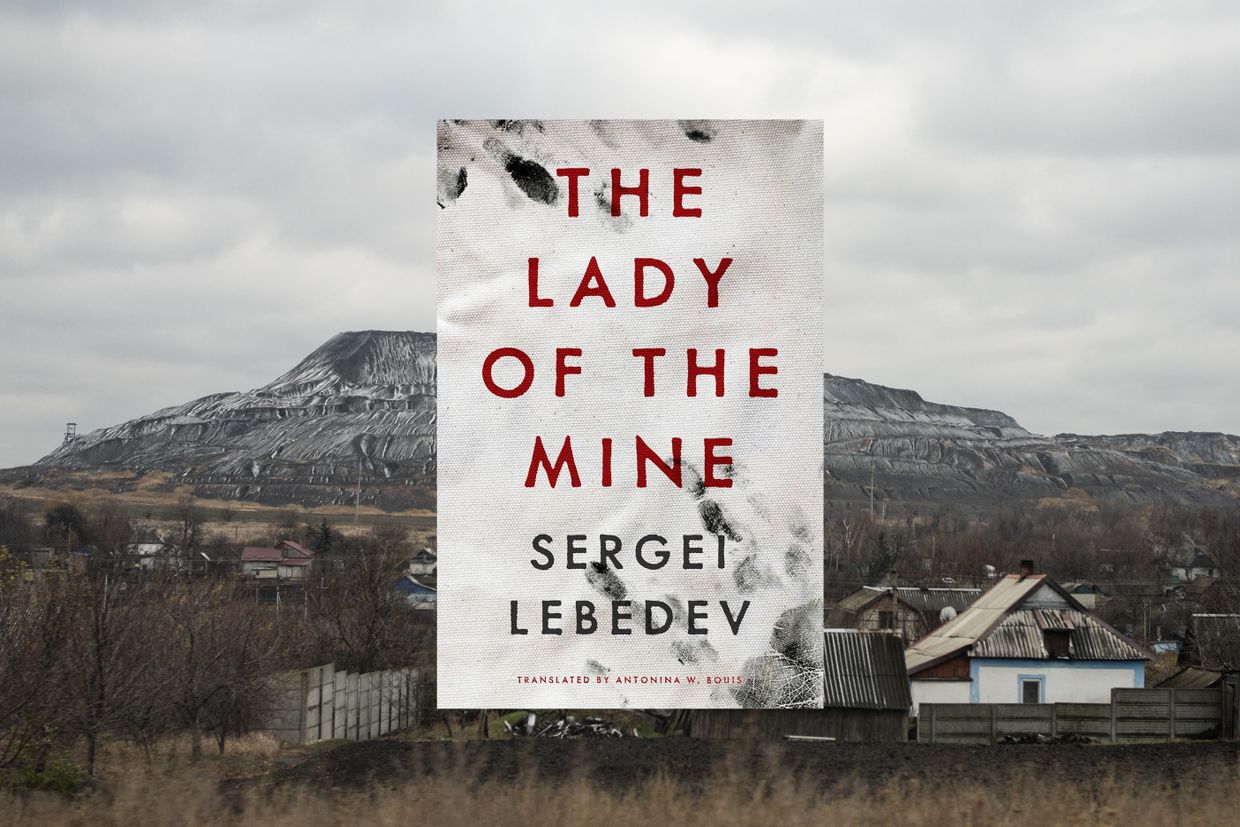Speaking to France's National Assembly on April 11, Russian opposition leader Vladimir Kara-Murza did not petition Europe for the Kremlin's total military defeat.
Yet, while answering one of the many questions posed to him, he talked about how a colleague supposedly learned that ethnic Russians find it "psychologically difficult" to kill Ukrainians because they are so "similar."
"They say… we are alike, these are very closely related peoples, as everyone knows: almost the same language, the same religion, centuries and centuries of shared history… But for someone from another culture, allegedly, it's easier," Kara-Murza said, recalling the words reportedly spoken to him by a colleague at the Parliamentary Assembly of the Council of Europe.
"I had never thought of it this way before. For me, the reasons (for Russia's ethnic minorities to fight in Ukraine) were primarily economic, but after she told me this yesterday, I began to think about it as well," he added.
Kara-Murza's remarks triggered a wave of online criticism, not only from Ukrainians but also from members of Russia's ethnic minority groups. He later claimed that his comments had been deliberately taken out of context and insisted that they contained no "imperialistic sentiment."
The backlash stems from a debate that gained a greater sense of urgency after the start of Russia's full-scale invasion of Ukraine — the debate over the movement to decolonize Russia.
While some critics — both within and outside the Kremlin's orbit — view it as a threat to the sovereignty of the Russian Federation, advocates argue it is a necessary confrontation with Russia's centuries-long imperial legacy.
"Decolonization is, first and foremost, about getting rid of imperial thinking," exiled Buryat activist and journalist Alexandra Garmazhapova told the Kyiv Independent.
"Many ignore the key point that racism and the treatment of ethnic minorities in Russia are directly linked to Russia's war against Ukraine, which is based on the same arguments."
Does the Russian opposition support decolonization?
The movement to decolonize Russia is subject to different interpretations, but according to historian Botakoz Kassymbekova, a specialist in Russian imperial history who teaches at the University of Basel, it primarily entails "parting with imperial structures, identity, and forms" of the Russian state.
"National self-determination (of Russia's ethnic minorities) is not simply about the ability to speak one's language, but about deciding about one's own societies' political structures and futures," she told the Kyiv Independent.
"It is about becoming a nation and letting others exercise national rights. I interpret it as a process of democratization."
The underlying factors driving the demand for decolonization stretch back through centuries of tension between Russia's ruling elite and the communities that have existed on the country's periphery.
"It is not (just) a discourse but a political practice," Alexander Etkind, a professor at Central European University, added.
"Historically, it has usually been a result of multiple wars and revolutions."
Russia is home to over 190 ethnic groups spread across the country. However, many ethnic minorities have faced systemic racism in their daily lives, and the country's republics — home to certain minority groups and distinct from oblasts and krais — are autonomous in name only.
On paper, these republics have their own constitutions and official languages alongside Russian. However, the Russian government has taken steps over the years to consolidate power and diminish the autonomy of its republics, including passing an amendment to its education laws in 2018 to make the teaching of non-Russian languages voluntary rather than compulsory.
In late 2022, the Republic of Tatarstan voted to change its constitution, banning the title "president" for its leader — a clear sign that in Russia, there is only one president — Vladimir Putin. This change followed a 2021 law that required all regional leaders to adopt the more generic title of "head."
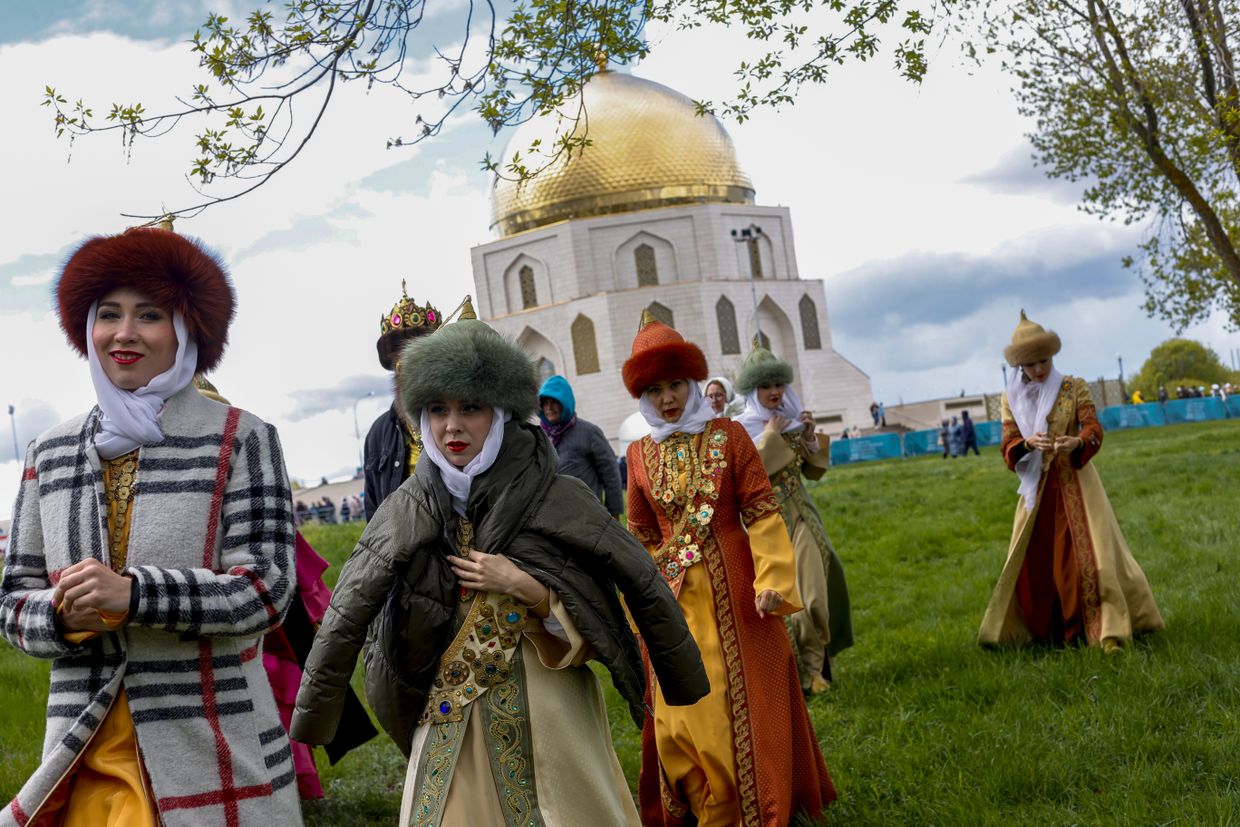
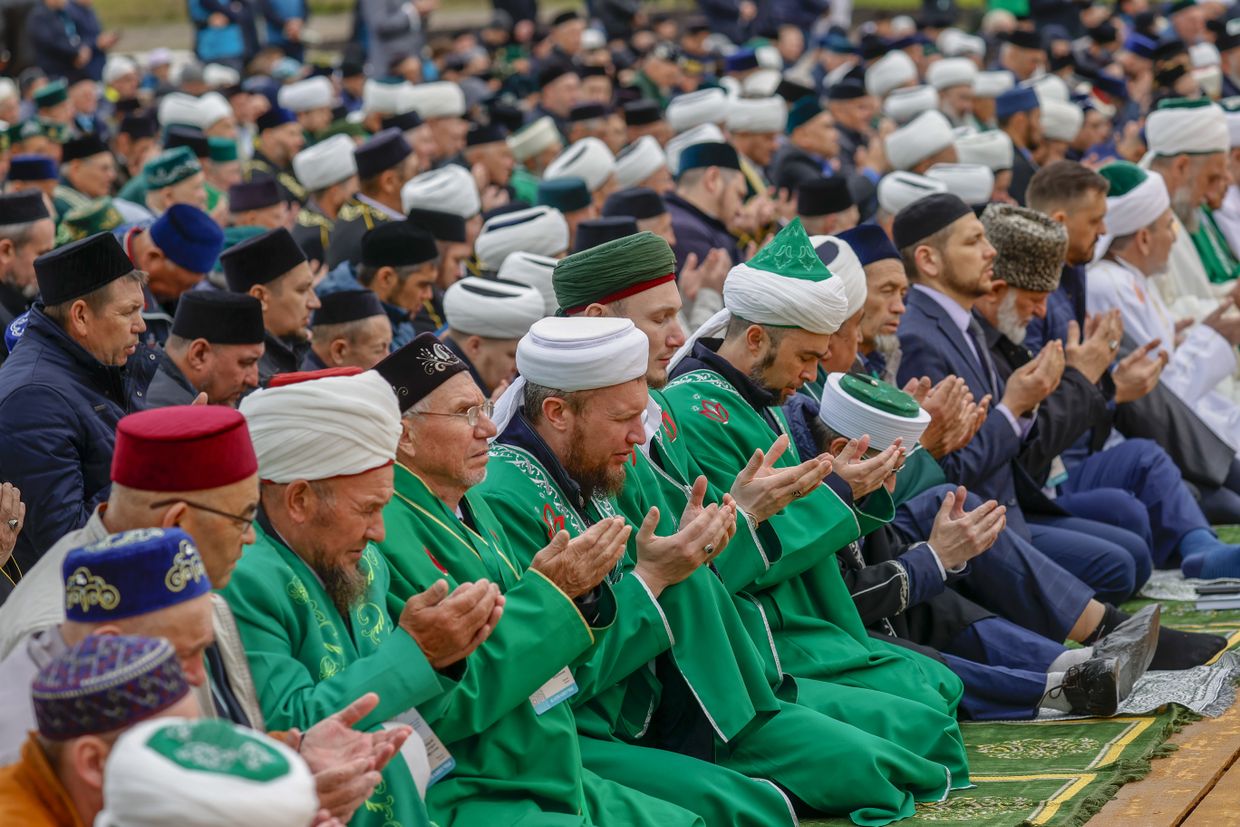
Though the title change may seem symbolic, it was just another example that showed how far local authorities would go to placate Moscow.
Russia's federal constitution also prohibits any republic from officially seceding, and historically, attempts to do so have led to violence, such as the wars that erupted in the Chechen Republic in the 1990s.
From exile, the Russian opposition has appeared to mostly sidestep the social and historical grievances fueling calls to decolonize Russia, often conflating the decolonial movement with an existential threat to the integrity of the Russian Federation itself.
"Navalnaya showed the whole world (with her comment) that she has no genuine interest in grappling with Russian colonialism and therefore no genuine interest in democracy, humanism, and justice."
At the Bled Strategic Forum in early September, opposition leader Yulia Navalnaya said that those who call for the decolonization of Russia "can't explain why people with shared backgrounds and culture should be artificially divided. Nor do they say how this process should even take place."
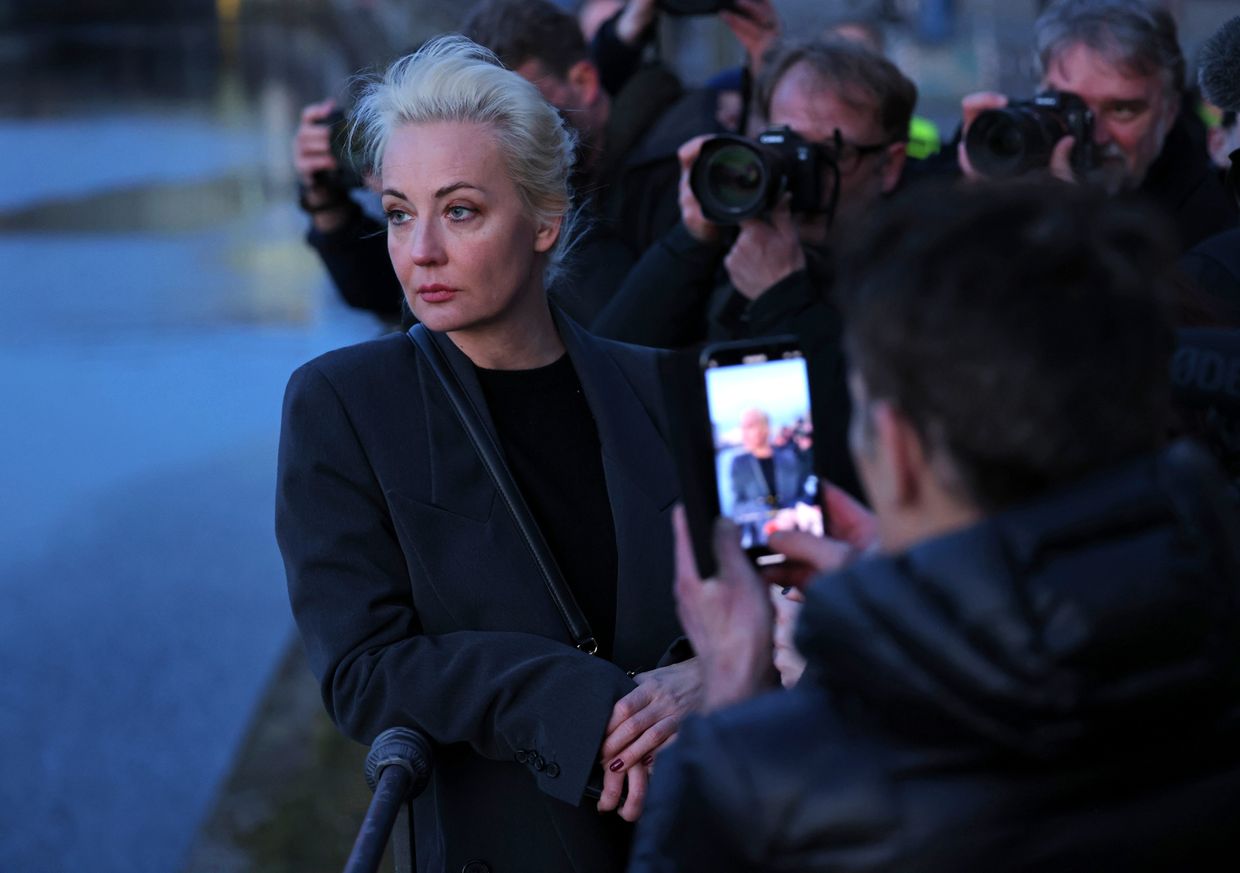
"Navalnaya showed the whole world (with her comment) that she has no genuine interest in grappling with Russian colonialism and therefore no genuine interest in democracy, humanism, and justice," Kassymbekova said.
The outright rejection of the idea "proved that Russian colonialism is not simply about Putinism, but a more general part of the political imagination and ambition of the metropolitan political groupings, liberal or illiberal."
In a December 2024 interview with the American news outlet Vox, Kara-Murza dismissed the decolonization movement as "an amazing gift to Putin's propaganda," arguing that it allows the Kremlin to reinforce the narrative that the West fundamentally "hates Russia," thereby rallying domestic support for its policies.
"Frankly, it is really damaging, really shortsighted, and really counterproductive to hear," he said.
Opposition leader Ilya Yashin, released together with Kara-Murza in early August following a U.S.-brokered prisoner exchange, acknowledged at an event in Warsaw on Oct. 7 that any new Russian federal treaty should include the right to secession.
However, Yashin later clarified that his stance was grounded in principle rather than a perceived necessity.
"We need a new federal constitution, one written from scratch, that includes these mechanisms. I don't see any signs of this happening (as a result of such an inclusion), though. I don't believe Tatarstan or any other republic truly wants to secede. But these mechanisms must be clearly spelled out. In every federation — Canada, Germany, and others — the right of regions to leave the federation is clearly defined," Yashin said.
At the same event, Yashin also said that Moscow "must share powers" with the republics and that there is "nothing wrong" with republics choosing their regional leader or teaching their languages in schools.
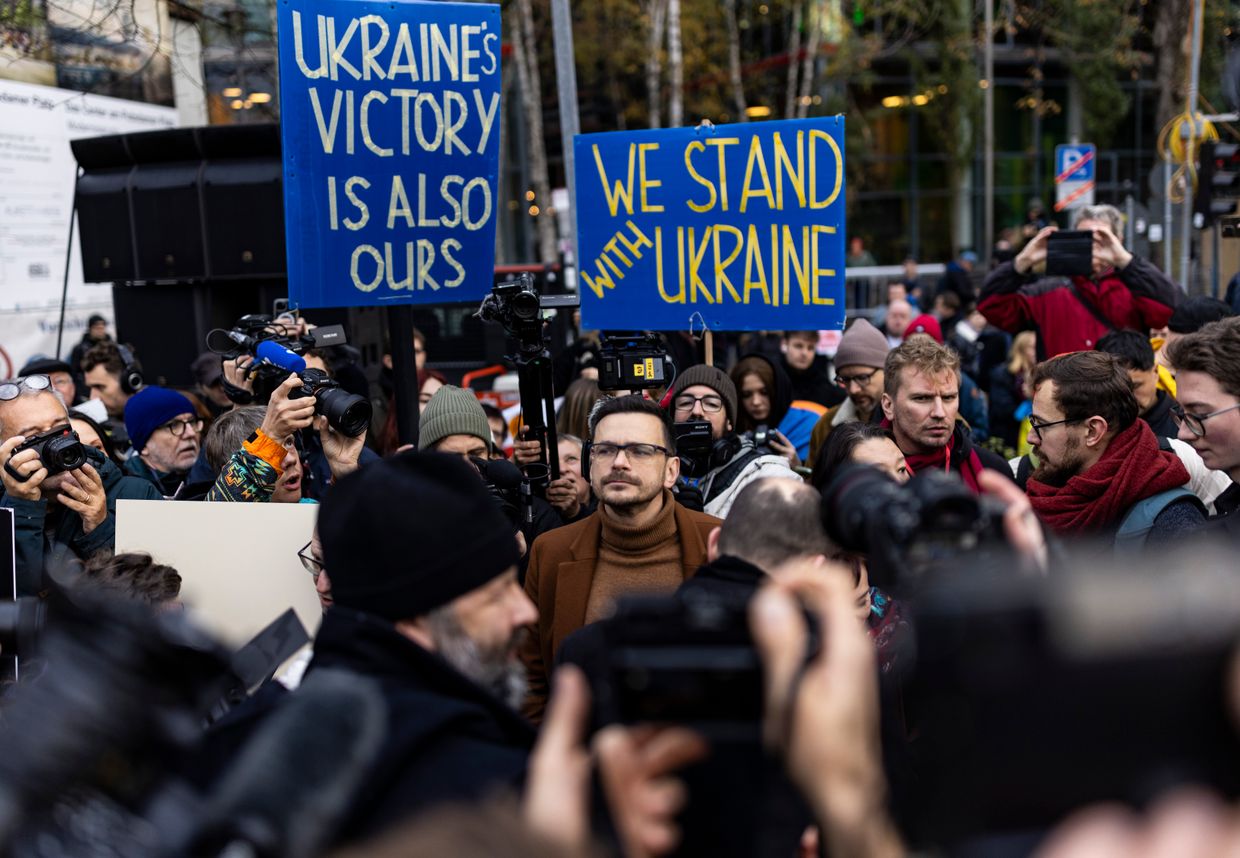
"Unlike Putin, I am not afraid of this," he said.
Dismissing the prospect of independence among Russia’s republics risks erasing the struggles of local pro-democracy activists — many of whom have also faced repression under the Kremlin — and rendering their political agency invisible, Kassymbekova cautioned.
But if Yashin and other Russian opposition leaders begin to engage more openly with them and help to elevate their causes, "then will we see signs of reorientation," she said.
The Kyiv Independent reached out to Yashin for comment, but as of the time of publication, he has not responded.
Are Russia's ethnic minority groups pushing for decolonization?
For members of Russia's minority groups, the path to dissent begins with a growing recognition of how Moscow had systematically impoverished their republics, eroded fundamental freedoms, and pursued policies to erase their cultural identities.
For Garmazhapova, her sense of identity was shaped by her grandfather, who always spoke to her in Buryat. The discrimination he faced for doing so in public opened her eyes to how deeply Russification had permeated life in Buryatia, attempting to erase the local identity.
"Once, at the medical clinic, he asked in Buryat who was last in the waiting line. A woman replied: 'Why are you chatting in your village language? Speak Russian!' And it still makes me angry when I think about how he must have felt at that moment," she said.
Located in Russia's Far East, Buryatia is one of the country's most impoverished republics. With a population of just under one million, according to the country's 2021 census, it has become totally politically and economically reliant on Moscow — and a source, along with other republics, of recruitment for Russia's war in Ukraine.
The Free Buryatia Foundation, co-founded by Garmazhapova in the wake of Russia's full-scale war against Ukraine in 2022, is dedicated to making Buryatia "free and prosperous" through a commitment to "the values of freedom and democracy."
The foundation helps Buryats who do not want to take part in the war with legal assistance and help those who fled Russia as a result of the war.
For that, the Russian government has branded the Free Buryatia Foundation — as well as its founders — a "foreign agent" and an "extremist" organization.
After giving an anti-war interview to a Ukrainian news channel, Garmazhapova was also placed on an international wanted list by Russian authorities and sentenced in absentia to seven years in prison.
All this sometimes makes it difficult to carry on with their work sometimes, according to Garmazhapova. However, the notoriety brought on by the Kremlin has also raised the foundation's profile within Buryatia.
The need to promote democratic initiatives in Buryatia has grown more urgent since the onset of the full-scale invasion, as Moscow increasingly exploits Russia's poorest regions with financial incentives to sustain its war effort in Ukraine. Centuries of Russification have also left the local population in these ethnic republics more vulnerable to state propaganda and manipulation.
"Not only the language but also the consciousness (of people in Buryatia) has been Russified. Many Buryats perceive themselves as part of Great Russia. From a psychological standpoint, it's understandable — it is more pleasant to be part of something big and strong," she said.
Under both the Russian Empire and the Soviet Union, Buryats fought back to preserve their cultural identity from Russia's imperial machine over the decades, only to be met with fierce repression.
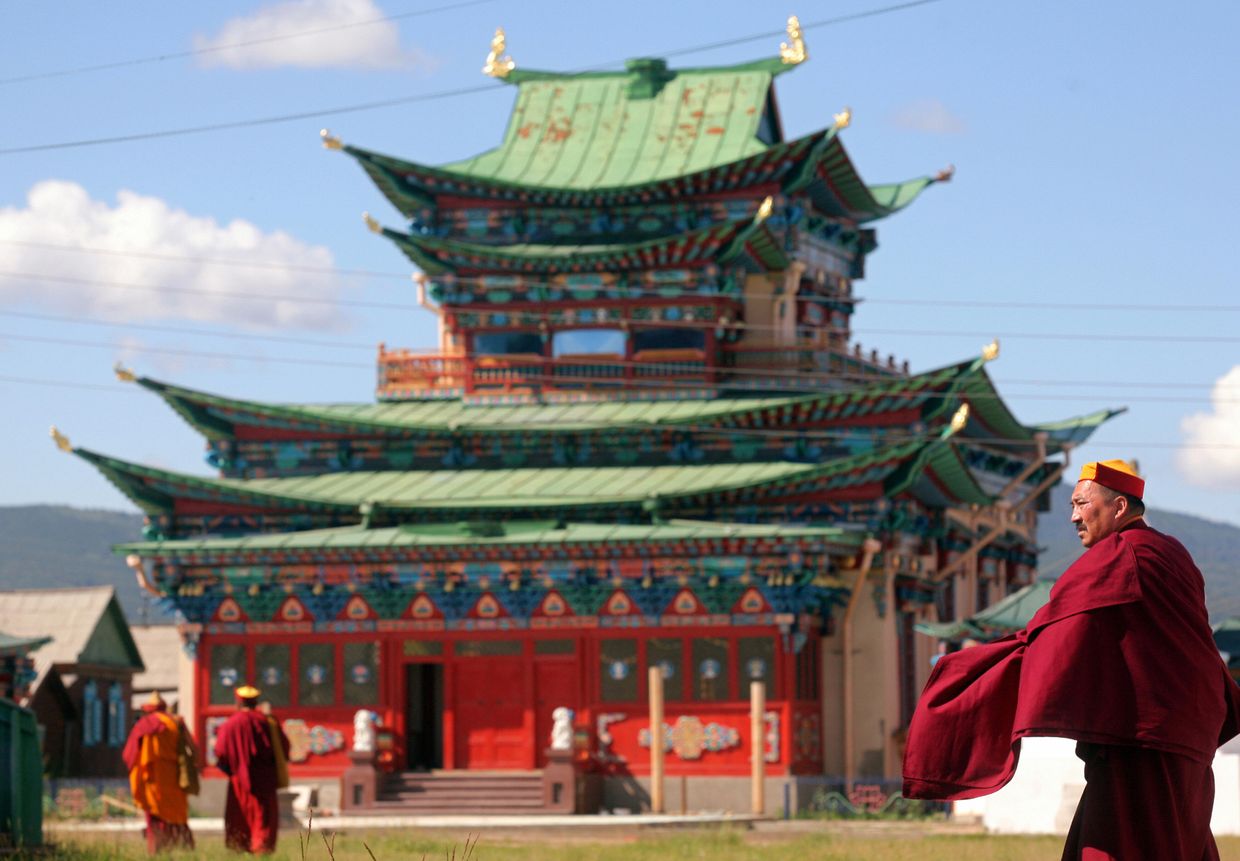
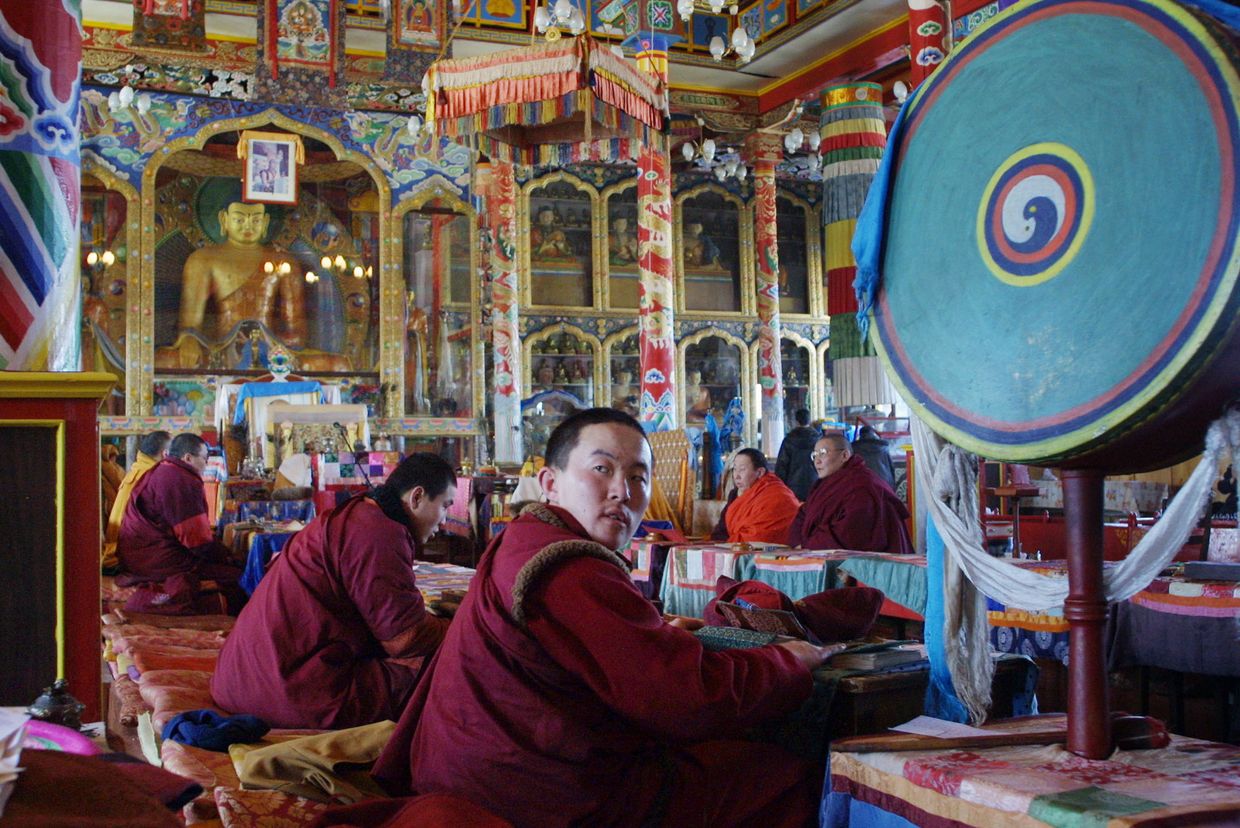
Buryats were among the victims of the Stalinist purges in the Soviet Union in the 1930s. The intelligentsia were rounded up, and those who weren't immediately killed were sent to work camps.
Among those shot were some of Garmazhapova's own family.
The Soviet authorities also changed the script of the Buryat language, first to Latin and then to Cyrillic. A somber joke among old people back then was that they "became illiterate three times over," according to Garmazhapova.
Religious figures have also been entirely co-opted by the Russian regime, with Damba Ayusheyev, the leader of Russian Buddhists, claiming that Buddhists are fighting for the "Russian world" in order to preserve their Mongolian heritage.
However, the Kremlin's attempts to coerce Buryats and other ethnic groups into believing they share equal status with ethnic Russians fail to align with the realities of daily life in modern-day Russia.
Valentina Matviyenko, Chairperson of the Federation Council, said in March 2025 that universities in Russia's capital cities should scale back admissions of students from the regions, arguing that the country must "shift (their) focus to regional universities: born there, needed there."
For proponents of decolonization, the path to overcoming Russia's entrenched institutional inequalities lies in fostering grassroots initiatives to strengthen their republics and reduce the Kremlin's grip on them.
"It is important to build institutions and a system of checks and balances in the regions," Garmazhapova said. "Simply having autonomy — partial or complete — does not guarantee the establishment of a democracy."
For Garmazhapova, the best-case scenario would be that if Russia's republics advocated for federalization through a referendum, it would be carried out under the watch of international observers.
"The future of Buryatia should be determined by the residents of Buryatia themselves," she added.
"But there must also be a leader who will take responsibility for the future of the new Buryatia. I don't see any such leaders yet."
Why does decolonization discourse matter?
While the Russian opposition in exile downplays decolonization, harmful discourse about the country's republics persists.
In an interview with a Jesuit publication in late 2022, Pope Francis attributed the worst Russian war crimes committed in Ukraine to non-ethnic Russians.
"Generally, the cruelest are perhaps those who are of Russia but are not of the Russian tradition, such as the Chechens, the Buryats, and so on," he said.
The Bucha massacre carried out during the early stages of Russia's full-scale invasion while Kyiv Oblast was under occupation, has been widely linked to Buryat soldiers — even though investigations suggest that only some of the Russian soldiers in Bucha were Buryats, others, including the leadership were ethnically Russian.
Nonetheless, Russia's ethnic minorities find themselves "the face" of Russia's war machine, even though some — like the Chechens of the Dzhokar Dudayev Battalion — are fighting on the side of Ukraine to defeat Russia.
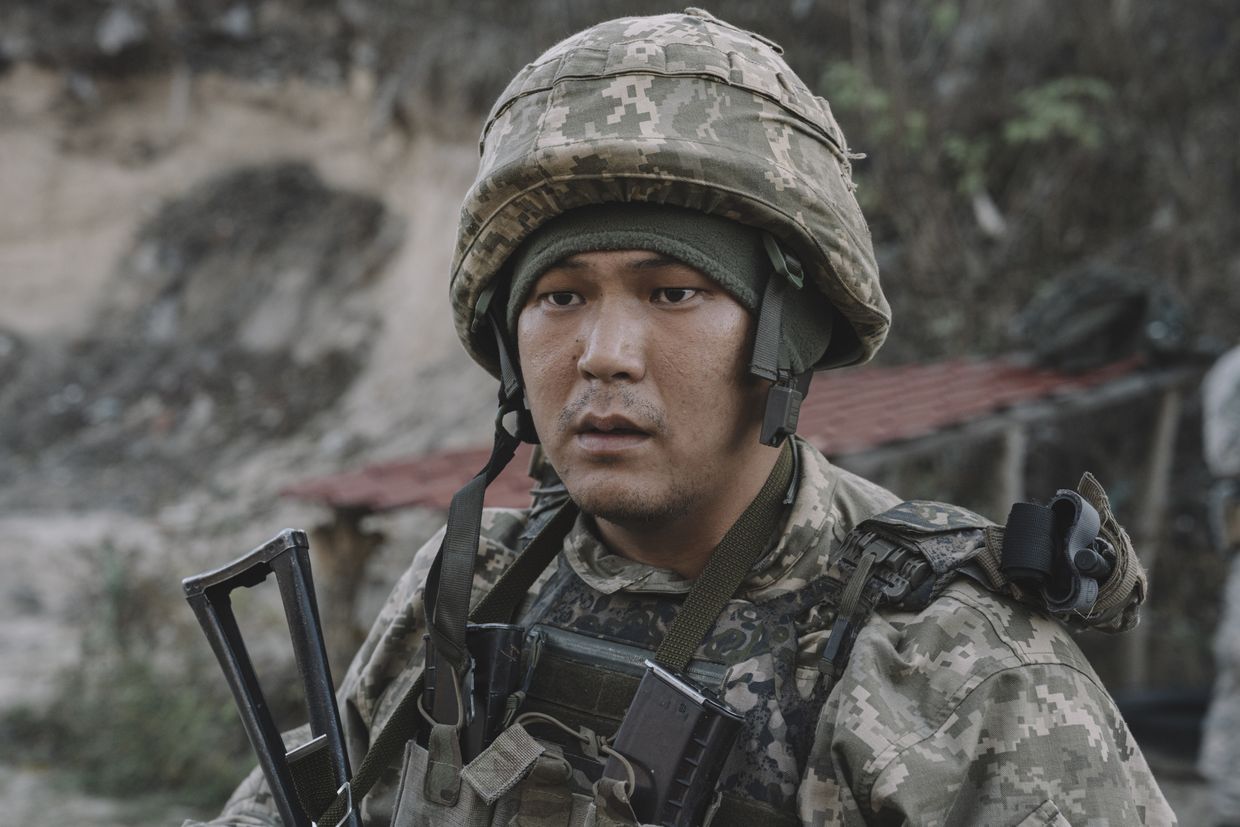
Some argue that the Russian opposition has power in the West to influence how the world sees its country, including its ethnic minorities.
"Russian political prisoners — regardless of their actual views — acquire not just sympathy and solidarity (which is natural), but also prophetic-like qualities (in the eyes of others) simply by surviving hell," exiled Russian artist and writer Katia Margolis wrote on April 13 on Facebook following the controversy surrounding Kara-Murza's comments.
"Their opinions carry special weight, even when they sprout imperialism, chauvinism, the myth of 'good Russians,' or things completely at odds with historical fact and current reality."
There was "naive hope" that the Russian opposition would find ways to work more closely with activists from Russia's minority groups and engage with decolonization discourse, according to Kassymbekova.
"However, their imperial reactions toward the colonized suggest they will attempt to retain Russia's imperial status and privileges and continue to ignore the colonized," she said.
Another reason for the Russian opposition's apparent unwillingness to engage with the decolonization movement could be due to "lack of political imagination," according to Etkind.
"All these people are Muscovites," he said. "What would Moscow do without Siberia? All of them still want something like greatness."
"Russia will be decolonized along with all other empires. We should all facilitate this process by various means."
Note from the author:
Hi there, it's Kate Tsurkan, thanks for reading my latest article. Decolonization is a long and painful process, regardless of which empire we're talking about, so I understand that there is a heated debate on the topic. Yet, I hope this article helps you understand a little better some of what people from Russia's republics and those who actively support them feel about it — their opinion on this topic is what matters the most. It you like reading about this sort of thing, please consider supporting The Kyiv Independent.
